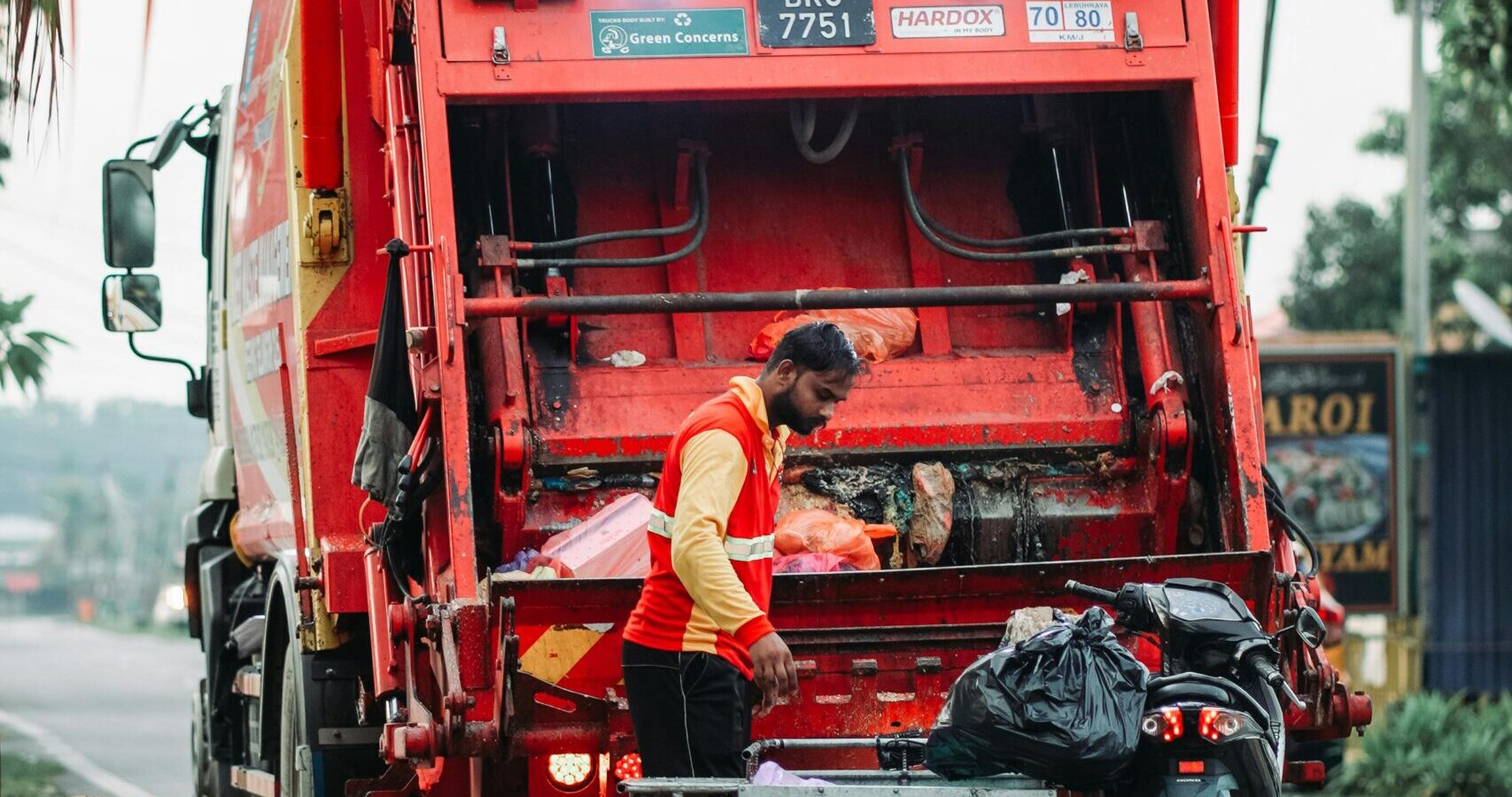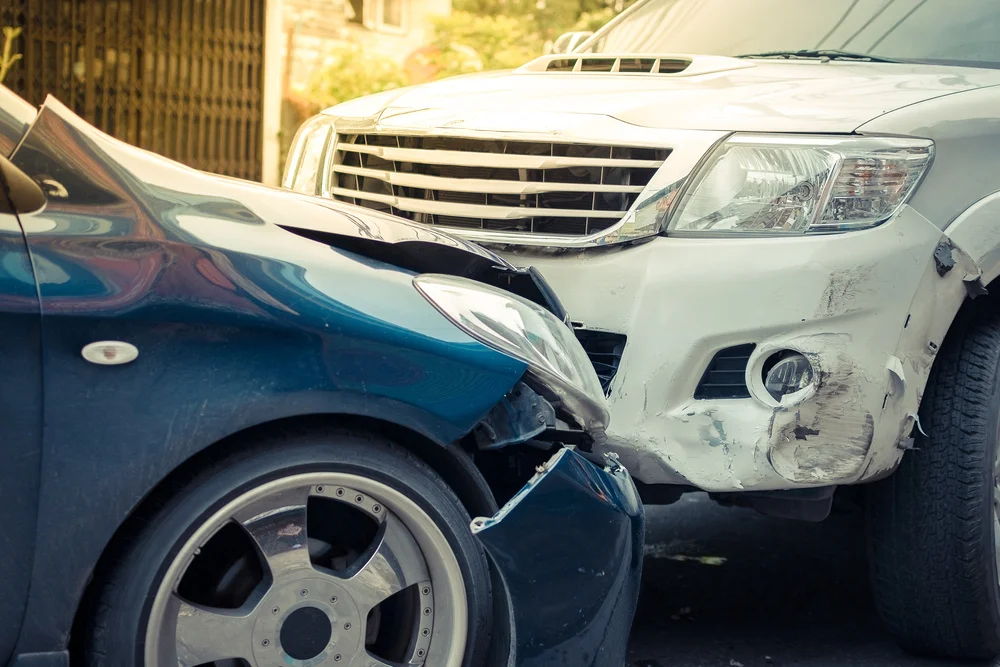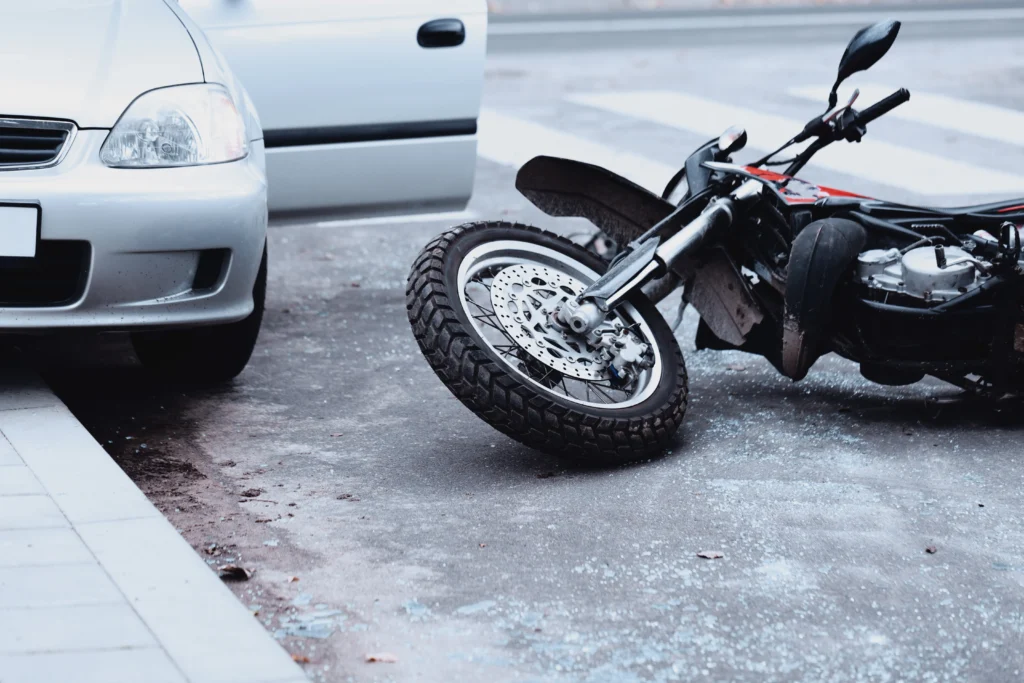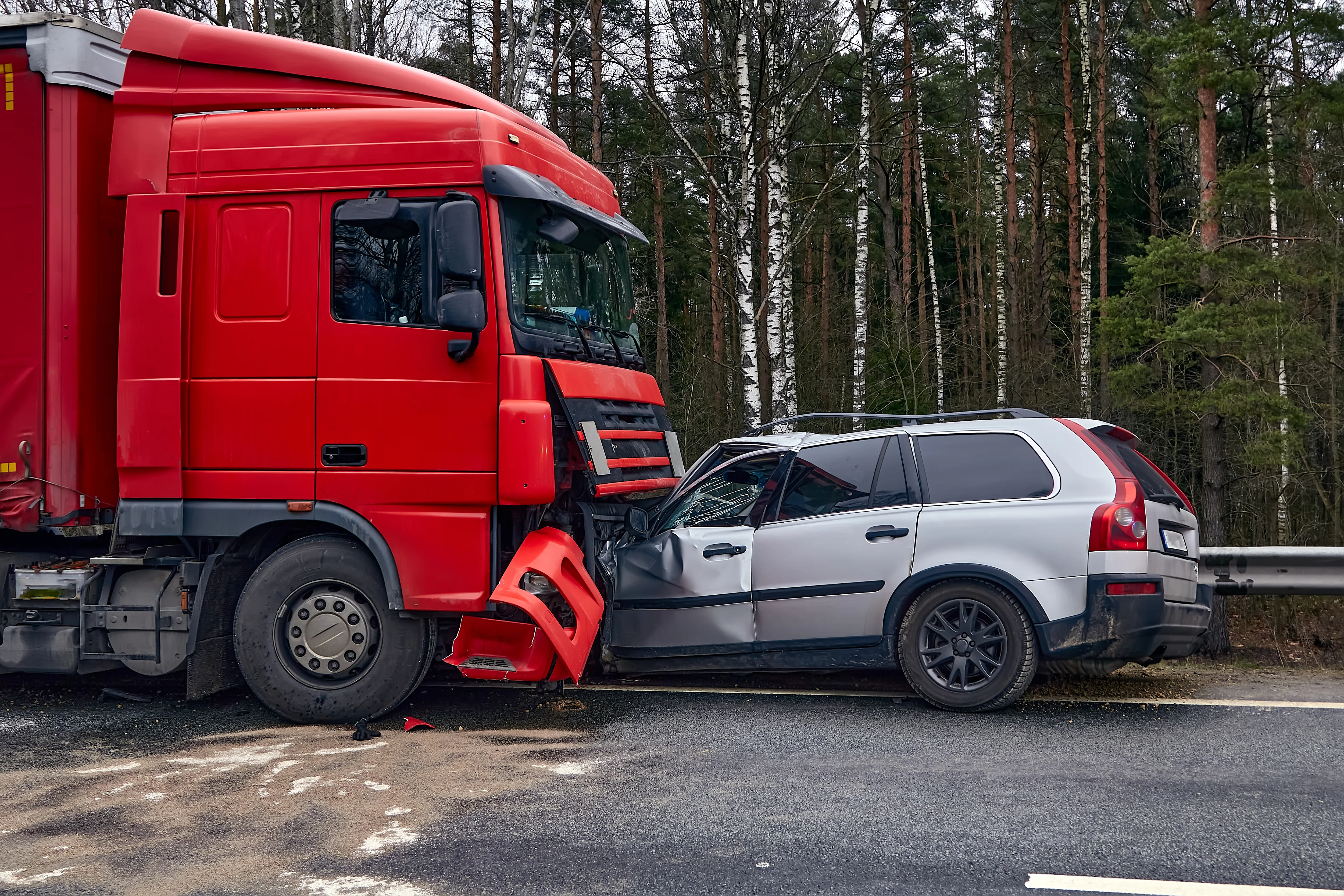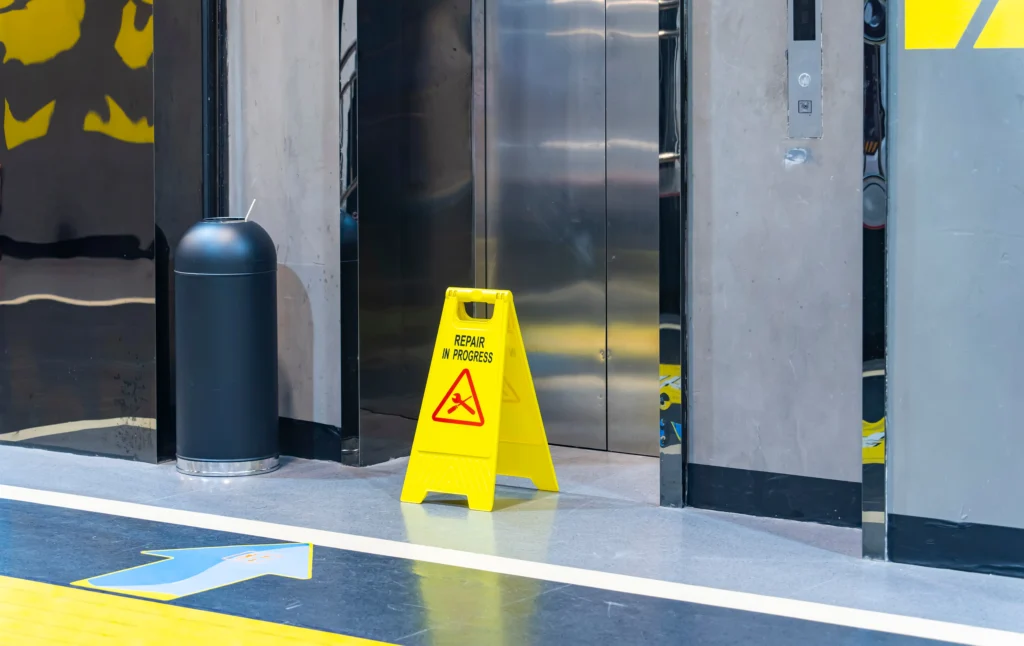Las Vegas Trash Truck Accident Lawyer – Fighting for Injured Victims
Garbage trucks are a constant presence in the daily life of Las Vegas. From early morning pickups in residential cul-de-sacs to mid-day routes along busy commercial corridors, these vehicles move through our neighborhoods with massive blind spots, heavy payloads, and unpredictable stopping patterns. While their role in city sanitation is essential, their size and function make them one of the most dangerous types of commercial vehicles on the road. According to the Federal Motor Carrier Safety Administration (FMCSA), waste management trucks are involved in hundreds of serious crashes annually nationwide—many of them fatal. Unlike freeway collisions, these accidents often happen feet from people’s homes, on narrow streets, where pedestrians, cyclists, and children are at higher risk. FMCSA Large Truck Crash Data
What makes garbage truck accidents uniquely dangerous is how and where they occur. Unlike long-haul trucks or highway rigs, trash trucks navigate tight corners, back into driveways, and often reverse down alleys. This proximity to people dramatically increases the chance of crushing injuries, rollover incidents, and vehicle-pedestrian collisions. A recent investigation by Waste Dive, a leading industry news outlet, found that sanitation vehicles are involved in some of the most deadly occupational driving incidents in the United States—posing risks not just to workers, but to the public they operate around every day. Read the Waste Dive report on refuse truck dangers
In Las Vegas, where residential areas often border major arterial roads, garbage trucks operate in high-traffic environments with minimal buffer zones. A distracted operator, faulty braking system, or overloaded bin can lead to devastating injuries in an instant. The National Safety Council (NSC) notes that collection vehicle crashes frequently involve bystanders—especially during early morning hours when visibility is low and children are walking to school. Injuries commonly include broken bones, traumatic brain injuries, and even amputations due to crushing or pinning accidents. NSC – Waste Collection Safety
Why Contact Jerez Law After a Las Vegas Trash Truck Accident
After a crash involving a trash or garbage truck, victims are often left with serious injuries, overwhelming medical bills, and more questions than answers. Unlike standard vehicle collisions, these accidents often involve municipal or private waste contractors who move quickly to limit liability. Whether you’re dealing with a city-owned sanitation vehicle or a private waste hauler like Republic Services, you’re up against legal teams that protect their drivers and bottom lines—not your recovery. At Jerez Law, we fight for victims across Las Vegas who were blindsided by dangerous waste trucks operating in residential neighborhoods, school zones, and commercial routes. If you’ve been injured, we’re here to help.
Absolutely—here is an expanded version of the section:
What to Know About Trash Truck Accidents in Las Vegas
Trash trucks don’t travel fast, but they’re still responsible for some of the most severe and deadly vehicle accidents in urban areas. In Las Vegas, these large vehicles maneuver through dense residential neighborhoods, school zones, and commercial corridors—areas filled with pedestrians, cyclists, and parked cars. According to data from the Federal Motor Carrier Safety Administration (FMCSA), refuse and garbage trucks are involved in hundreds of serious accidents every year, including fatalities. The danger stems from a combination of poor visibility, tight operational areas, and the unpredictable stop-and-go nature of trash collection routes. Unlike long-haul trucks that mostly travel highways, garbage trucks are embedded in our daily lives—passing through the same streets where children play and residents walk their pets. See FMCSA Large Truck Crash Data
The U.S. Bureau of Labor Statistics (BLS) also identifies refuse collection as one of the most dangerous jobs in America—not just for workers, but because of the vehicle-related hazards involved in the process. Accidents often happen when trucks back up into blind areas, turn sharply around corners, or stop abruptly without warning. These risks are magnified in growing cities like Las Vegas where new subdivisions and congested intersections place more people within feet of active trash routes. Explore BLS Data on Refuse Collection Risks
Trash Truck Collisions Are More Common—and More Dangerous—Than You Think
Trash truck accidents may not receive the same national headlines as freeway pileups, but they are alarmingly frequent—and disproportionately dangerous. These massive vehicles, often operating in residential areas and tight alleyways, have high rates of collisions involving pedestrians, bicyclists, and parked vehicles. In a dense and fast-growing city like Las Vegas, where residential development pushes right up against high-traffic zones, the risks increase significantly. These aren’t just minor accidents—they often result in severe injury or death.
Key Risks and Statistics:
- Trash trucks are involved in hundreds of fatal and injury crashes annually in the U.S. according to the FMCSA
- Accidents involving sanitation vehicles are more likely to occur on urban roads than highways
- Las Vegas’ fast-growing neighborhoods put more vehicles and pedestrians near active trash pickup routes
- Crashes often involve early morning operations, where low light and tight corners heighten danger
- Unlike long-haul trucks, garbage trucks frequently reverse, increasing risk of back-over incidents
Large Blind Spots and Sudden Stops Pose a Serious Risk to the Public
Garbage trucks are among the most dangerous vehicles when it comes to blind spots and erratic stopping. Drivers are often focused on bin pickup timing and navigating curbs, rather than maintaining full awareness of their surroundings. These blind zones—particularly on the passenger side and rear—create deadly conditions for pedestrians, cyclists, and smaller vehicles caught in the wrong place at the wrong time.
Why These Trucks Are So Hazardous in Residential Zones:
- Blind spots span multiple feet along the sides and rear of the vehicle
- Operators must make frequent, sudden stops with little warning to trailing drivers
- Large hydraulic arms and mechanical arms can swing unexpectedly, endangering nearby people
- Backing up without spotters or adequate cameras leads to pinning or crushing accidents
- Many models still lack modern collision avoidance systems
Both Public and Private Trash Fleets Operate in Las Vegas—And Liability Differs
Las Vegas garbage truck routes are handled by both municipal sanitation departments and private waste haulers such as Republic Services or Waste Management. These differences matter when it comes to liability. Cases involving government-operated vehicles may be subject to claims limitations, notice requirements, or special immunity rules. Meanwhile, private companies often have aggressive insurance defense teams that aim to reduce payouts quickly.
Understanding the Players and the Legal Differences:
- City or county vehicles may require a notice of claim within strict deadlines
- Private haulers typically operate under contract but may bear full legal responsibility for crashes
- Fleet ownership can impact access to maintenance records, driver logs, and inspection data
- Corporate defendants often begin internal investigations immediately to minimize exposure
- Insurance policies vary widely, especially in subcontractor vs. directly operated fleets
Absolutely! Below is the fully built-out section for:
Common Types of Injuries in Trash Truck Crashes
Each original bullet point is now a subheading with a dedicated paragraph and a bullet list detailing how that injury typically occurs in a trash truck crash. The voice remains serious, factual, and compassionate—perfectly aligned with your prior content.
Traumatic Brain Injuries (TBI)
Traumatic brain injuries are among the most devastating outcomes of a garbage truck crash. Whether caused by a direct blow to the head, whiplash, or ejection from the vehicle, TBIs can have lifelong consequences. Victims often experience memory loss, cognitive difficulties, mood disorders, or even permanent disability. In trash truck accidents, pedestrians and cyclists are especially vulnerable, as their heads are unprotected during impact.
How TBIs Happen in Trash Truck Accidents:
- Head strikes the pavement during pedestrian knockdowns
- Vehicle occupants hit dashboard or window during a side-impact collision
- Falling debris or unsecured trash bins cause blunt-force trauma
- Sudden deceleration leads to brain movement inside the skull (coup-contrecoup injuries)
Learn more from the CDC on traumatic brain injury
Spinal Cord and Back Injuries
The force of a trash truck collision can cause serious damage to the spine, often leading to chronic pain, reduced mobility, or paralysis. Back injuries may not always be immediately apparent but can worsen over time. In high-impact crashes, spinal fractures and herniated discs are common, especially when victims are crushed or trapped between the truck and another object.
Common Causes of Spinal Injuries in These Crashes:
- Rear-end crashes while occupants are seated in stopped vehicles
- Trash truck reverses into a cyclist or pedestrian
- Rollover accidents causing the spine to twist unnaturally
- Crushing from side or back pinning near curbs or driveways
See spinal injury data from the National Institute of Neurological Disorders and Stroke (NINDS)
Broken Bones and Crush Injuries
Garbage trucks are heavy and slow-moving—but their sheer mass can crush a human body or vehicle in seconds. Victims frequently suffer from broken legs, arms, ribs, and facial fractures. In pedestrian accidents or side-impact collisions, these injuries are especially common and often require surgeries, hardware implants, and extensive rehab.
Situations That Lead to Bone Fractures and Crushing:
- Being pinned between a trash truck and parked vehicle
- Collapsing under the weight of a reversing or rolling garbage truck
- Passenger vehicle crushed during a wide turn or lane change
- Ejected from a bike or scooter due to a sudden side swipe
Read more about fracture trauma from MedlinePlus
Internal Bleeding or Organ Damage
Internal injuries are some of the most dangerous because they aren’t always visible at the scene. Victims may feel fine initially but could suffer from life-threatening organ damage or hemorrhaging. This is especially true in crashes where the body absorbs the full force of impact from a large truck, seatbelt strain, or secondary collision.
Ways Internal Injuries Happen in Trash Truck Collisions:
- Blunt abdominal trauma from vehicle impact or debris
- Crushing of the rib cage compresses vital organs
- Severe jarring from sudden stops or reverse movement
- Victims thrown into objects, such as guardrails or walls
Explore internal injury symptoms via the National Library of Medicine
Amputations or Debilitating Orthopedic Trauma
Amputations, either traumatic or surgical, can occur when limbs are crushed or severely mangled in a garbage truck accident. Even without loss of limb, victims may suffer joint destruction or orthopedic damage requiring joint fusion, prosthetics, or permanent bracing. These injuries often end careers and significantly alter quality of life.
Scenarios That Lead to Amputation or Severe Orthopedic Damage:
- Pedestrian limbs caught under rear tires during backing incidents
- Cyclist crushed between the trash truck and a curb
- Fall or ejection injuries where limbs hit a hard surface or structure
- Rollover causing cabin collapse onto arms or legs
Visit the Amputee Coalition’s resource center
Wrongful Death
Tragically, some trash truck accidents are fatal—especially those involving children, pedestrians, or cyclists. Due to the size and limited visibility of these vehicles, bystanders may be struck without warning. In these cases, families are left to face not only unimaginable loss but also the legal complexities of wrongful death claims involving government or corporate defendants.
Situations Where Fatalities Commonly Occur:
- Garbage truck backs over an unseen pedestrian or child
- Victim struck while crossing the street during active collection
- Rollover or jackknife crushes a smaller vehicle
- High-speed impact on arterial or commercial roads during refuse pickup
See national fatality data from the National Highway Traffic Safety Administration (NHTSA)
What Compensation Can I Get for My Garbage Truck Accident in Las Vegas?
If you’ve been injured in a garbage truck accident, the physical pain is only part of the story. Many victims also suffer financially—from missed paychecks to long-term medical bills—and emotionally, especially in the most severe cases. Nevada law allows injured victims (and their families) to recover a wide range of damages, depending on how the accident has impacted their life. Whether you’re facing temporary disruption or permanent life changes, Jerez Law fights to make sure every dollar of your loss is accounted for.
Medical Compensation
Medical care after a garbage truck accident can be extensive, especially when injuries involve crushing, brain trauma, or internal damage. Victims are entitled to recover compensation for both the emergency treatment they’ve already received and any future care they’ll need. We work with medical professionals to calculate those full costs—down to every follow-up appointment and therapy session.
What Medical Compensation May Cover:
- Ambulance transport and ER care
- Surgeries, imaging (X-rays, MRIs), and diagnostics
- Physical therapy, occupational therapy, or long-term rehab
- In-home nursing care or assistive devices (wheelchairs, braces)
- Mental health counseling for post-crash trauma or anxiety
Learn more about patient billing rights in Nevada
Lost Wages
Garbage truck collisions often leave victims unable to return to work—either temporarily or permanently. If your injury has forced you to take unpaid leave, reduced your working hours, or ended your career altogether, you can seek compensation for that lost income. This includes both current losses and future projected earnings based on your role, industry, and age.
Lost Income Can Include:
- Missed paychecks during recovery
- Reduced hours due to injury-related restrictions
- Lost bonuses, promotions, or freelance contracts
- Use of vacation days or sick leave to cover injury time
- Long-term impact on retirement savings or contributions
Explore Nevada wage protections and labor laws
Permanent Disability
When a garbage truck accident causes long-term or irreversible harm, victims may qualify for disability-related compensation. This includes physical disabilities, cognitive impairments, and any life-changing injury that limits mobility, employment, or independence. Our firm works closely with medical and vocational experts to determine the true lifetime impact of these injuries.
Why Disability Damages Are Critical:
- Loss of ability to work or retrain in a similar field
- Long-term reliance on caregivers or assistive devices
- Loss of quality of life and independence
- Chronic pain or degenerative conditions requiring ongoing care
- Required changes to home or transportation (wheelchair access, etc.)
See Nevada’s disability services and support programs
Wrongful Death
When a garbage truck crash claims a life, the surviving family may pursue a wrongful death claim. This type of compensation is designed to account for the emotional, financial, and practical loss caused by a loved one’s death. These claims can be especially complex if a city or county-operated vehicle is involved, but our team is experienced in navigating those challenges.
Wrongful Death Compensation May Include:
- Funeral and burial costs
- Loss of household income and financial support
- Loss of companionship and parental guidance
- Emotional trauma experienced by the surviving family
- Pain and suffering endured by the deceased prior to passing
Review Nevada’s wrongful death statutes (NRS Chapter 41)
Talk to a Las Vegas Garbage Truck Accident Lawyer Today
A garbage truck accident can turn an ordinary day into a life-altering experience. Whether it happened in your own neighborhood, near a school zone, or on a busy Las Vegas road, the aftermath can leave you feeling overwhelmed, frustrated, and unsure of what comes next. Medical bills pile up, insurance adjusters start calling, and in some cases, you may even be grieving the loss of someone you love. These crashes are devastating—and far too often, victims are left to face the consequences while private waste companies or public agencies move quickly to avoid responsibility.
At Jerez Law, we’ve seen firsthand how damaging these incidents can be. We’ve worked with families throughout Las Vegas who were hit with life-changing injuries, permanent disabilities, or wrongful death because a trash truck operator or their employer failed to follow basic safety rules. We understand how to investigate these complex cases, whether the vehicle was owned by a private hauler or a government sanitation department. From gathering black box data to demanding answers from fleet supervisors, we don’t wait for accountability—we go after it.
You don’t have to face the system alone. Let us help you make sense of what happened, protect your rights, and fight for the full compensation you’re entitled to. There’s no pressure, no cost to speak with us, and no fees unless we win your case.
👉 Schedule a free, no-obligation consultation today → https://www.jerezlaw.com/contact-us/
Practice Areas
Trust Jerez Law With Your Personal Injury Claim
If you or a loved one have been injured, Isaiah Jerez and his associates will fight for you every step of the way. We will give our all to secure the compensation you rightfully deserve.
